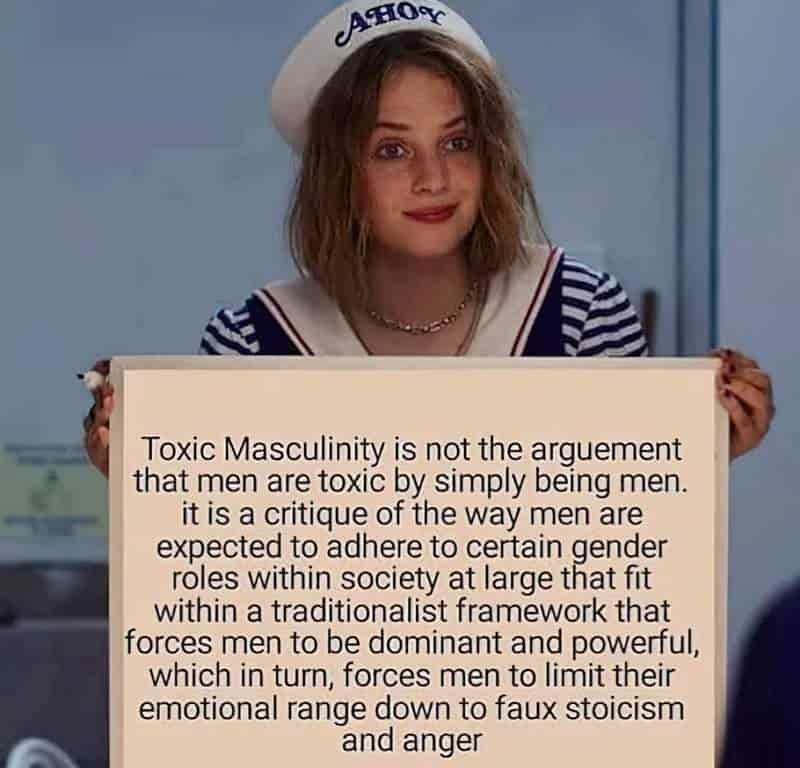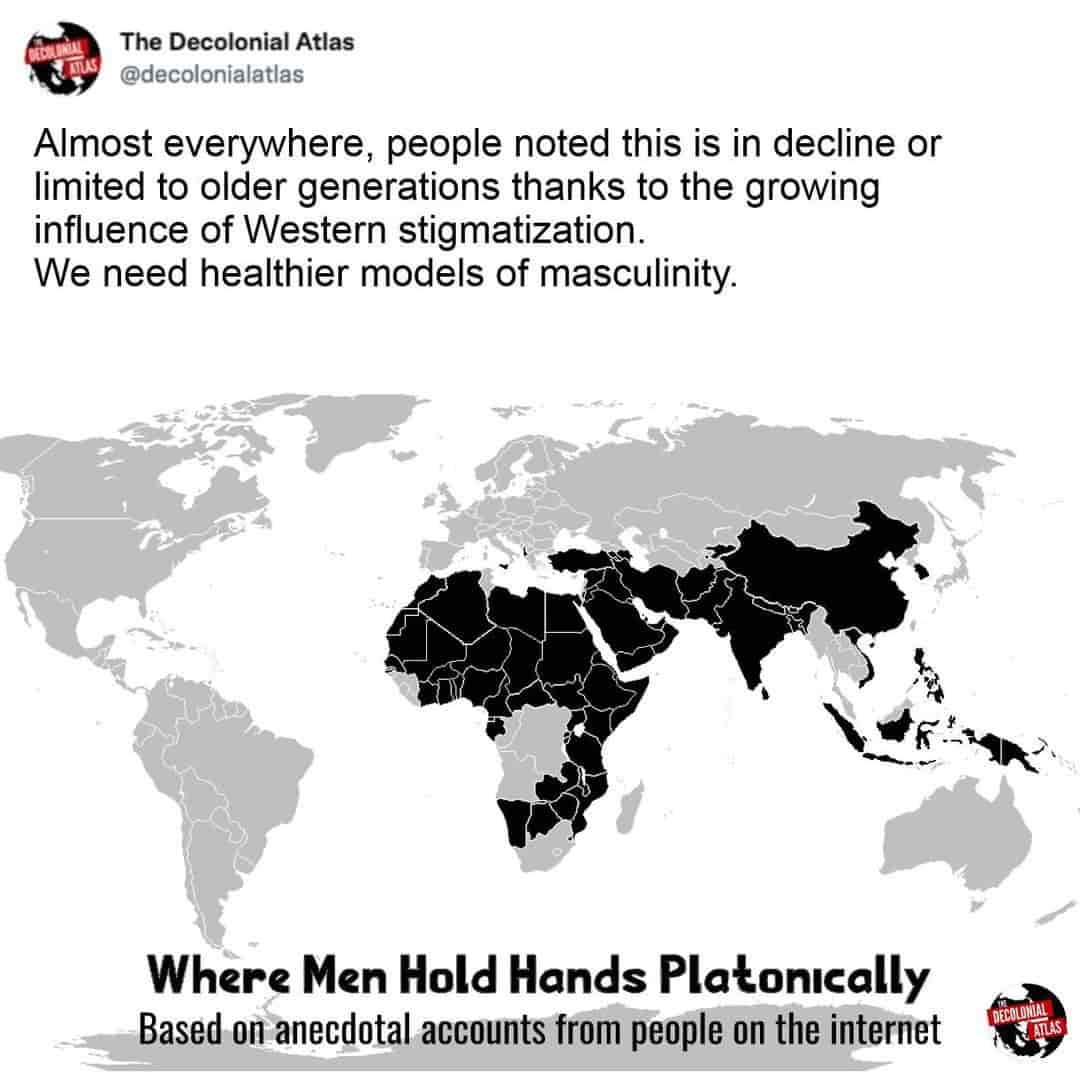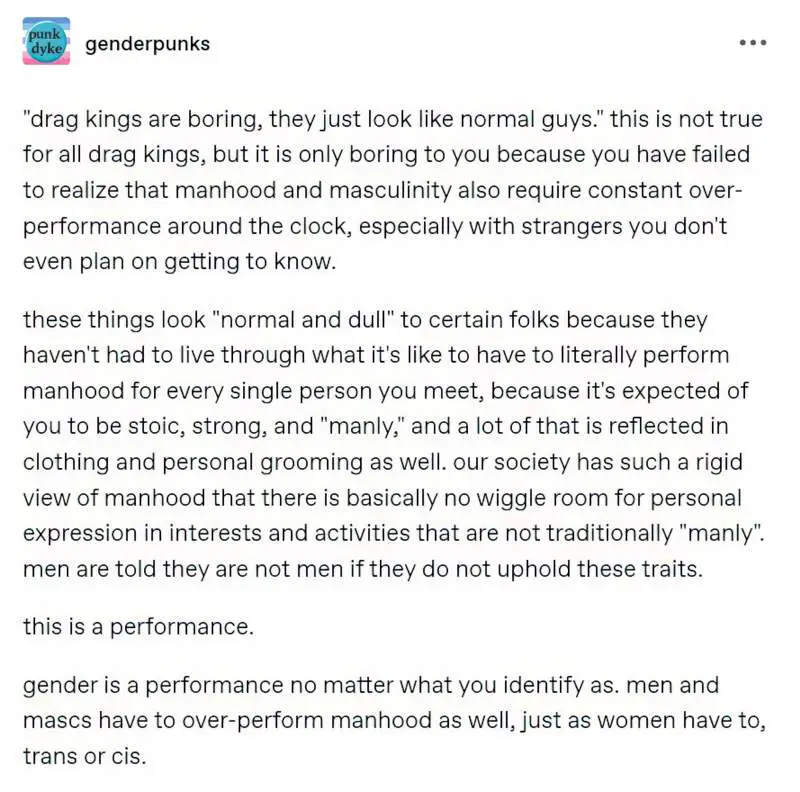A few weeks ago Gillette dominated social media for producing an advertisement criticising what is now more widely known as ‘toxic masculinity’. In academic circles, ‘toxic masculinity’ has been used since the 1990s and refers to ‘… the constellation of socially regressive male traits that serve to foster domination, the devaluation of women, homophobia, and wanton violence’ (Kupers, 2005).
And now ‘toxic masculinity’ is a phrase used outside academic circles. Without ever having looked up what ‘toxic masculinity’ really means, many responded negatively to Gilette’s advertising message, arguing various versions of:
- Masculinity is not toxic
- Not all men are toxic
- Masculinity is wonderful, actually, and needs to be celebrated
Counterarguments largely contained an explanation of what ‘toxic masculinity’ means, or is supposed to mean: That toxic forms of masculinity are toxic.
Though I feel uncomfortable with this part of the phrase myself, I’ll leave aside the etymology of ‘toxic’, and how the scientific definition remains different from the pop psychological usage. That’s a different conversation. ‘Toxic’ in this context means ‘deadly’ at worst, ‘damaging’ at best.
Fast forward a few weeks and Donald Trump Jr. is at a rally. He uses the phrase ‘loser teachers’:
“I love seeing some young conservatives because I know it’s not easy. Keep up that fight. Bring it to your schools. You don’t have to be indoctrinated by these loser teachers that are trying to sell you on socialism from birth. You don’t have to do it. Because you can think for yourselves. They can’t.”
Note that I’ll also leave aside the various interpretations of ‘socialism’, except for a meme:

Donald Trump Jr’s use of ‘loser teachers’ is an interesting counterexample because ‘toxic masculinity’ is a phrase generally used by progressives, mostly defended by progressives, whereas the phrase ‘loser teachers’ was used by a conservative, and is mostly defended by conservatives.
In case you missed that analog, here is a comment on a post by School Library Journal’s Facebook feed after SLJ posted an article refuting that ‘teachers are losers’. The poster self-identifies as a teacher, but does not consider herself a ‘loser teacher’.

ADJECTIVES, NOUNS AND WORD ORDER
- ‘Toxic masculinity’
- ‘Loser teachers’
Both are identical in their construction: An adjective modifying a noun.
There are many ways linguists talk about adjectives, and one major distinction is between ‘attributive’ and ‘predicative’ adjectives. Attributive adjectives are placed before the noun they describe:
- blue fish
- tall person
- swimming dolphins
Predicative adjectives are placed later in the sentence, after a verb.
- The fish is blue
- The person, who is tall
- Those dolphins that were swimming
As you can see, there are various ways of joining an adjective phrase to a noun phrase… when the adjective is in predicative position.
Adjectives in predicative position afford the speaker more nuance. When an adjective comes after the noun in this way, we are able to make use of a comma (in written English) and of pauses + intonation (in spoken English).
This allows us to distinguish between a ‘restrictive’ adjective phrase and a ‘non-restrictive’ adjective phrase.
Restrictive adjective phrase:
- We need to get rid of masculinity which is toxic.
Non-restrictive adjective phrase:
- We need to get rid of masculinity, which is toxic.
The first sentence, sans comma, conveys the idea that there are various forms of masculinity, but in this case we’re only talking about a certain kind of masculinity — that which is toxic. Subtext: The speaker believes other forms of masculinity are fine.
The second sentence, with a comma, conveys the idea that there is one broad form of masculinity, and that broad category is toxic. Subtext: The speaker doesn’t approve of masculinity in general.
Another useful word is ‘appositive’. An appositive adjective appears right beside the noun it describes. ‘Toxic masculinity’ and ‘loser teachers’ are both appositive adjectives. (These adjectives are also attributive, but attributive adjective phrases can be very long, e.g. super-duper hairy-ass poo-bum twit. Only ‘poo-bum’ is appositive, because it’s right next to the noun it describes.)
Linguists have noticed that appositive adjectives tend to be heard as non-restrictive, whereas relative clauses and prepositional phrases coming after the noun (postnominal PPs) tend to be heard as restrictive.
In other words, when we say ‘toxic masculinity’, the listener is likely to infer that masculinity, in general, is toxic.
When Donald Trump Jr. says ‘loser teachers’, the listener is likely to infer that all teachers, in general, are losers.
This is a feature of language, before personal politics even come into it.
PESKY PRAGMATICS
This chart is a useful breakdown of linguistic fields, which I found somewhere on the net:
Pragmatics muddy the waters, because unfortunately, people are not computers. No matter how careful we are with our language, the other person (the interlocutor) will bring their life experiences to its interpretation. Sadly for cross-political communication, we interpret a sentence according to information we already possess, or according to politics to which we already subscribe.
When a progressive person hears ‘toxic masculinity’, we expand that in our head to ‘toxic forms of masculinity’. When a conservative hears ‘toxic masculinity’ they expand that in their head to ‘masculinity is toxic’.
When a progressive person hears ‘loser teachers’, we expand that in our head to mean ‘teachers are losers’. When a conservative hears ‘loser teachers’, they might choose to hear ‘specific teachers who also happen to be losers’.
WHAT CAN SPEAKERS DO ABOUT THIS?
Two critical concepts:
ONE
If someone says ‘loser teachers’, or ‘toxic masculinity’, or any adjective + noun combo, listeners will interpret that as ‘all nouns are adjective’ unless their existing personal politics intervene. If Donald Trump Jr. did not mean to convey the message that teachers in general are losers, he picked his words badly. (Whether he was indeed speaking of a small sector of teachers is another question, and I remain skeptical.)
Unfortunately for progressive feminists like me, the phrase ‘toxic masculinity’ has the exact same problems, to do with the intersection of syntax and pragmatics. I fully acknowledge there are aspects of masculine indoctrination which need to change, yet I feel the phrase ‘toxic masculinity’ shuts down the conversation rather than opens it up. The exact cohort who needs to be talking about these problems only hear ‘all masculinity is bad’, ‘I am bad’, ‘I am ashamed’, ‘I’m not allowed to feel ashamed — the only negative emotion I’m allowed to feel is anger’. That anger is directed back on the speaker. Everyone remains miserable.
How do commentators avoid using the problematic phrase ‘toxic masculinity’? Some institutions (e.g. The American Psychological Association) instead prefer the term ‘traditional masculinity’. Is this any less problematic to the people most resistant to criticism? I suspect not.
There’s also the term ‘hegemonic masculinity’. But who, outside academic’ truly understands the meaning of hegemony? I mean, it’d be great if everyone did understand that word. And there’s an argument to be made for making that one mainstream. Hegemonic masculinity is pretty much the same thing as ‘toxic masculinity’, but for whatever reason, non-academics understand ‘toxic’ much more easily. Maybe one day hegomony will be considered a mainstream English word. But not yet.
I propose a minor linguistic fix in the meantime: We could replace ‘toxic masculinity’ with ‘toxic forms of masculinity’. This has the added advantage of conveying the important idea that it’s not masculinity, but masculinities plural. That’s how sociologists think of it, and so should we all.
TWO
Unfortunately this rubs up against another universal fact about human language and its evolution — speakers convey ideas using the fewest words possible. But when aiming to persuade, good communicators will occasionally resist this tendency to abbreviate and condense. Sometimes, briefer is not better. ‘Toxic forms of masculinity’ may seem wordy, but is a better place to begin the conversation. As for ‘losers’? Donald Trump Jr. is right. It does seem America’s teachers are losing out. But calling anyone a ‘loser’ is a very broad, deliberate insult, and nothing good can come of it.

RELATED READING
There are other problems with the concept (rather than the grammar) of ‘toxic masculinity’.
Some scholars have critiqued toxic masculinity for the way that it constructs a sense that there is a contrasting ‘healthy’ masculinity for which men should strive. For example, Waling (2019) argues that the binary of toxic versus healthy masculinity is unhelpful.
Hannah McCann
For more on this see Waling, A. (2019). Problematising ‘toxic’ and ‘healthy’ masculinity for addressing gender. Australian Feminist Studies , 34(101), 362–375.



Header poster by Leopoldo Metlicovitz, circa 1930

